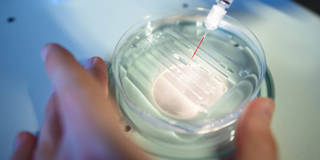Many of today’s biological innovations are complex, and we need to understand them fully to gauge their impact on our lives and societies. Only by working together can governments, scientists, businesses, and the public unleash the power of biology for good while effectively managing the risks.
HAMBURG – Last November, the world cheered the news that three gene-based COVID-19 vaccines – one developed by German biotech company BioNTech in collaboration with Pfizer, another by US-based biotech firm Moderna, and a third by the University of Oxford and AstraZeneca – had proved effective in clinical trials. But in October, researchers revealed that off-target effects of the CRISPR-Cas9 gene-editing tool used to repair a blindness-causing gene in the early stages of human embryo development often eliminated an entire chromosome or a large part of it.

HAMBURG – Last November, the world cheered the news that three gene-based COVID-19 vaccines – one developed by German biotech company BioNTech in collaboration with Pfizer, another by US-based biotech firm Moderna, and a third by the University of Oxford and AstraZeneca – had proved effective in clinical trials. But in October, researchers revealed that off-target effects of the CRISPR-Cas9 gene-editing tool used to repair a blindness-causing gene in the early stages of human embryo development often eliminated an entire chromosome or a large part of it.